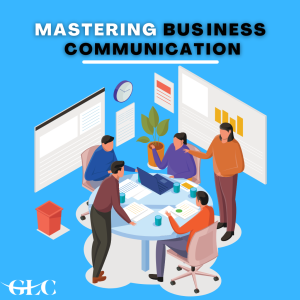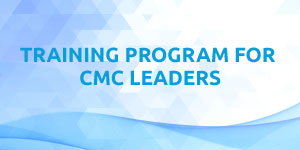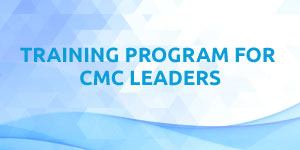Free knowledge to monitor the world of events. Have a look at our must read Blogs on Pharma, Finance, HR, Health and Cross Industry.
Mastering Business Communication
2022-08-16
Key Skills for Professional Success
In every professional environment, success depends mostly on good business communication. It requires a spectrum of abilities that improve interactions, develop trust, and promote teamwork rather than only message delivery. Here we explore certain aspects of corporate communication that can have a major influence on your work life and offer practical situations to show their use.

Enhanced Communication Skills
In the corporate environment, excellent communication abilities are absolutely essential. This entails not just presenting yourself clearly and boldly but also customizing your message for your readership. Crucially is knowledge of when to be professional or informal, how to arrange your ideas for best effect, and how to be concise but thorough.
Scenario: You have to show the stakeholders of the company's performance in a quarterly conference. Using data visuals and organizing your presentation with simple, brief points will help you to clearly convey difficult information. Making your language and examples fit the varied audience guarantees that everyone, from non-technical managers to financial analysts, will grasp and interact with the information.
Facial Recognition Skills
Knowing facial expressions will help you far better be able to interpret and interact with individuals in a corporate environment. Good facial recognition enables you to understand reactions and emotions, so guiding your communication approach.
Scenario: You observe at a virtual team meeting that a colleague routinely looks away and frowns while a specific project is under discussion. Understanding these facial signals, you choose to follow up discreetly and find they worry about their participation in the project. Dealing with these issues releases tension and raises team morale.
Body Language Awareness
Often louder than words, body language is a potent element of communication. Knowing your own and others' body language will help you project confidence, transparency, and attention.
Scenario: You keep open body language by leaning slightly forward, establishing constant eye contact, and avoiding crossing your arms as you are negotiating a deal with a potential client. These motions show your confidence and interest, therefore valuing the client and increasing their likelihood of agreeing to reasonable conditions.
Advanced Listening Skills
Listening is a deliberate activity involving more than just word hearing. Good advanced listening techniques are paying full attention, deciphering the underlying information, and intelligent response.
Scenario: During a brainstorming session, a team member offers a unique project idea. Through attentive listeningnodding, summarizing their points of view, and posing clarifying questionsyou not only validate their concept but also inspire more team participation. A more creative and cooperative environment results from this.
Increased Ability to Cultivate Trust
Good corporate partnerships are built on trust. Building trust requires consistent, open, and dependability in your conversations. It also calls for empathy that is, knowledge of and resolution of other people's viewpoints and concerns.
Scenario: You regularly inform your staff, as a project manager, about changes in scope or deadlines as well as project advancement. Your openness and dependability help to establish confidence among team members so they may express their worries with peace of mind and sure direction of the project is guaranteed.
Understanding the Dynamics of Feedback
In every kind of corporate environment, development, and improvement depend critically on feedback. Knowing the mechanics of feedback-giving and receiving will enable you to build an always-developing culture.
Scenario: You have a feedback session with your staff following a big project completion. You give particular, encouraging comments on what went right as well as helpful recommendations for development. Open and encouraging surroundings inspire team members to improve their performance on the next initiatives.
Utilizing the Power of Silence
Silence is a powerful tool in communication that is often overlooked. Silence used strategically can provide time for introspection, underline key ideas, and show sympathy.
Scenario: You purposefully stop a heated debate over project goals before answering a divisive subject. This pause lets feelings calm down and gives time for introspection, therefore guiding a more measured and effective conversation.
Advanced Observational Skills
Being attentive means seeing the minute signals and subtle cues others might overlook. Improved observational abilities will enable you to react more successfully by helping you grasp the background and nuances of situations.
Scenario: In a meeting with a new customer, you notice minute signals including their responses to several pricing choices and their degree of participation in talking about different product attributes. These findings enable you to customize your offer to suit their requirements, thereby enhancing the possibility of closing the business.
The Art of Asking Questions
One ability that helps propel more knowledge and creativity is knowing the appropriate questions to ask. Asking questions is an art in which one frames open-ended, provocative, relevant inquiries.
Scenario: Rather than asking "Is everyone okay with this plan?" in a team meeting ask, "What possible obstacles do you see with this approach?" This open-ended inquiry motivates team members to express their ideas and worries, therefore enabling a more complete assessment of the strategy and possible enhancements.
Application of Emotional Intelligence
The capacity to identify, comprehend, and control your own as well as those of others is known as emotional intelligence (EI). In business communication, EI is awareness of emotional undercurrents, effective stress and conflict management, and social skills and empathy demonstration.
Scenario: After getting critical comments from a client, a team member clearly is unhappy. Using emotional intelligence, you approach them sympathetically, therefore respecting their emotions and providing encouragement. Your encourage them to consider the comments as chances for development, therefore strengthening their morale and dedication to excellence.
Conclusion
Ultimately, learning several aspects of corporate communication can help you greatly improve your professional contacts and performance. While face recognition and body language awareness help you read and respond to nonverbal clues, therefore strengthening relationships with colleagues and clients, improved communication skills permit unambiguous articulation of ideas.
Good advanced listening techniques inspire respect and inclusivity, so promoting teamwork and creativity. Building good relationships by means of openness and dependability fosters trust; knowledge of feedback dynamics helps to ensure ongoing development. Silence, sophisticated observing techniques, and the craft of asking questions have great power to start meaningful dialogues and improve decision-making. Using emotional intelligence guarantees that you will negotiate workplace complexity with empathy, therefore improving your capacity for leadership and teamwork.
By developing these abilities, you increase your professional performance and help to create a more harmonic, efficient, and pleasant workplace. A strong and flexible professional identity built on these abilities will equip one to negotiate the opportunities and challenges of the modern corporate environment. Accept this road; it will help you to inspire, influence, and guide in any environment.
Want to enhance your business communication? Enroll in our MasterClass today! Gain practical insights and strategies to elevate your skills and transform your career. Click here to get started!
By Sasly Ahmeth, Social Media Executive & IT Support, GLC Europe, Colombo Office, Sri Lanka.
Get a feel for our events

Training Program for CMC Leaders - EU edition
14th September 2026 - 09th April 2027
Rich with practical insights and real-world applications
learn more >>
Training Program for CMC Leaders - US edition
14th September 2026 - 09th April 2027
Rich with practical insights and real-world applications
learn more >>
Advanced Stability Testing of Pharmaceuticals MasterClass - US edition
24-27 February, 2026
Increase the likelihood of studies receiving regulatory approval
learn more >>












